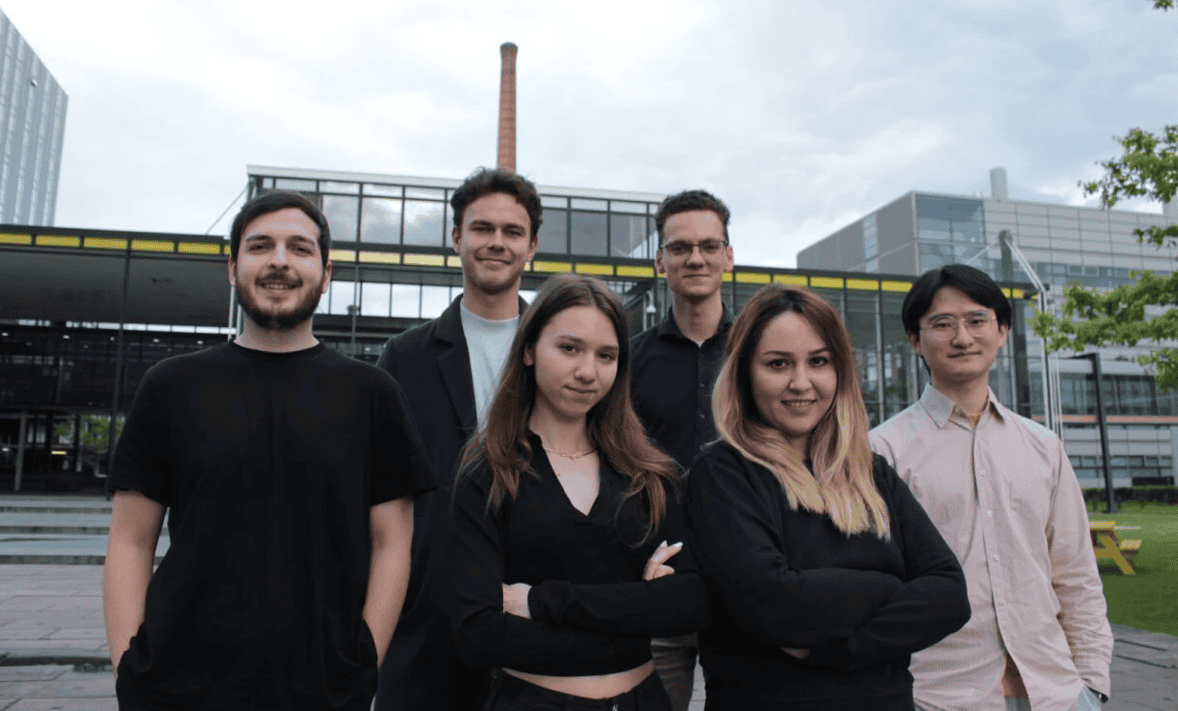
Many of us are used to checking a product’s label for its calorie count. Similarly, we’re moving towards a future in which sustainability information is just as easy to find. Startup Yopla has an AI tool that makes it easy for food businesses to make sustainable and eco-friendly choices. We interviewed Purvi Sanklha, founder and CEO of the company. Last year, she secured second place in the predecessor version of the AI Pitch Competition.
The AI Pitch Competition
The AI Pitch Competition is a Brabant initiative aimed at showcasing the most innovative AI solutions and allowing startups to present their ideas, connect with industry leaders, and accelerate their growth. The competition is taking place again this year. Twelve ambitious AI startups have been selected. The finale will be held on November 7, 2024.
How did Yopla get started?
“The idea for Yopla emerged during my studies at Tilburg University, where I concentrated on sustainability and strategic management. I’m originally from India, but I moved to the Netherlands due to the country’s reputation as a global leader in sustainability. However, the stark contrast I encountered—an abundance of plastic at local stores like Albert Heijn – struck me. It seemed at odds with the country’s sustainability image. I initially developed a dataset to enhance my grocery shopping experience, laying the groundwork for what would become Yopla.”
What exactly does Yopla do, exactly?
“Yopla focuses on helping food services, such as caterers, understand and reduce their meals’ carbon footprint and waste. For instance, we analyze the footprint of the juice being served and provide actionable insights to minimize it. Our platform uses algorithms to suggest ingredients.”

How does AI come into play?
“Calculating the carbon footprint of certain foods is incredibly complex. For instance: analyzing the footprint of a cup of coffee involves over 50 different data points. Traditional methods of analyzing this data are time-consuming, costly, and not very effective. This is where AI can help. We use algorithms to automate the analysis process. Our AI can tailor recommendations to individual tastes and needs, similar to how Netflix provides personalized content suggestions.”
Why did you decide to participate in the AI Pitch Competition last year?
“I got drawn into the startup world, and one of my mentors suggested I enter the AI Pitch Competition. She thought it would be a great fit for Yopla since it focuses on AI, has a significant impact, and offers a substantial prize. I agreed; it seemed like an excellent opportunity. We eventually won second place with a prize of €35.000. It was a great experience.”

How did you invest the prize money from the competition?
“We used the prize money to cover administrative and legal expenses. We also expanded our team. Until then, we had a small, passionate core team from the university working on Yopla as a side project. We hired our first developer with the funds and brought on some interns to support our growth and development. This investment was key in transitioning from a side business to a scalable venture.”
In which phase is Yopla right now?
“We’ve completed product validation and testing, and our focus now is on delivering the product to various targets across the value chain. We hope to secure some major clients from larger enterprises, as we have already been working with, for instance, small cafes.”
What has been your biggest challenge so far?
“Sometimes, the data we provide can be counterintuitive. For instance, we worked with a chef who thought sourcing tomatoes locally from the Netherlands was the most sustainable choice due to reduced food waste. However, our analysis revealed that Dutch tomatoes actually have a higher carbon footprint than those imported from Spain, where they are grown in open fields and in season. This was surprising to many. Convincing people of the accuracy of such data and addressing these unexpected findings can be a significant challenge.”
And what’s your biggest milestone so far?
“It’s always amazing to see how we can help companies with valuable insights and suggestions. We’ve really shifted the conversation, with people now regularly asking about the carbon footprint of their coffee or other foods, just like they’d check calorie counts. When I started during the COVID-19 pandemic, these questions were pretty rare. Seeing more people now focused on reducing their impact and embracing sustainability is very encouraging.”







